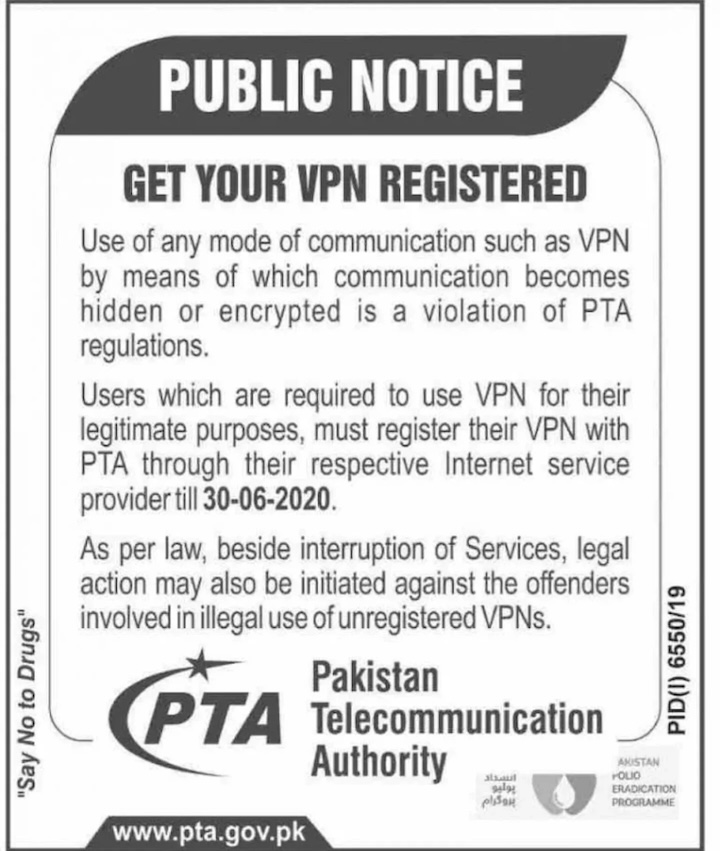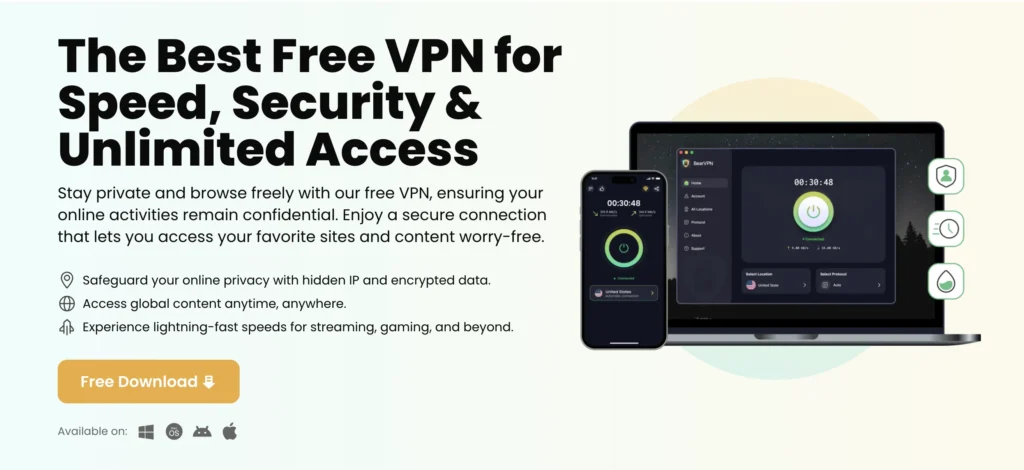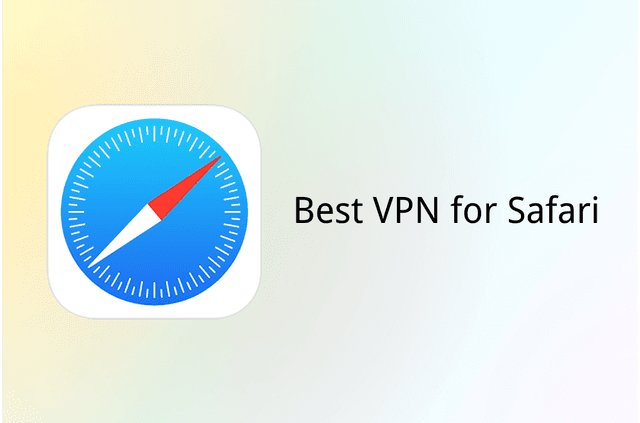When you search “is VPN legal in Pakistan”, you usually find two very different answers: some people say VPNs are banned, others say “everyone uses them.” The truth sits somewhere in between. This guide walks you through the current VPN laws in Pakistan, explains real-world risks, and shows you how to choose and use a VPN more safely and responsibly.
Is VPN Legal in Pakistan Right Now?
If you only want a quick answer to “is VPN legal in Pakistan or banned,” you need to separate the tool from how it is used. Pakistan does not treat every VPN connection as a crime, but authorities do regulate and sometimes block unregistered VPNs, especially when they are used to bypass official restrictions.
In practice, VPNs are legal but regulated in Pakistan. The Pakistan Telecommunication Authority (PTA) has, for years, required businesses and some individuals to register VPNs used for legitimate purposes such as corporate networks and information security. Unregistered VPN services can be throttled, disrupted, or fully blocked at the network level.
For you as an everyday user, this means:
- Simply having a VPN app on your phone is not automatically illegal.
- Using a VPN to commit clearly illegal activities remains illegal.
- Using an unregistered VPN can fall into a grey area where your traffic is technically possible but not fully accepted by regulators.
The legal environment changes over time, so you should always treat any “yes/no” answer with caution and keep an eye on new PTA announcements and news reports.
How Pakistan Regulates VPNs: PTA Rules, Bans, and U-Turns
Understanding VPN laws in Pakistan helps you decide how much risk you are comfortable with. Instead of looking at one headline about a “VPN ban in Pakistan,” you need to see how policy has evolved and how it is enforced in everyday life.
Over the last decade, PTA has repeatedly announced campaigns against “unregistered VPNs.” Businesses are often encouraged or required to submit details of the VPN tunnels they use for remote work, financial systems, or international branches. The official justification is usually to fight cybercrime and protect national security, not to block every encrypted tunnel you create.

From time to time, you see news about a possible VPN ban in Pakistan. In recent years, there have been proposals to block all unregistered VPN services, push a nationwide firewall, and tighten control over social media platforms such as X (formerly Twitter). Some religious bodies have also argued that using VPNs to access blocked content is not acceptable. At the same time, legal experts and government departments have questioned whether an outright ban has a strong basis in law.
That tension has led to several U-turns: deadlines to block unregistered VPNs have been postponed, and broad “VPN banned in Pakistan” plans have been walked back or softened. For you, this creates a confusing landscape where VPNs are widely used but also periodically threatened.
In day-to-day life, the result is a “legal but monitored” status. Companies continue to rely on VPNs. Many individuals still use them quietly. Yet, because authorities can detect and interfere with VPN traffic, you should assume your connection is not invisible and that policy can tighten with little warning.
What to Look for in a VPN That Works in Pakistan
When you start comparing services, you may search for phrases like “best VPN for Pakistan” or “VPN that works in Pakistan without being blocked.” Instead of chasing every marketing claim, it is smarter to focus on a few core qualities that matter in a tightly filtered network.
A useful VPN for Pakistan should offer:
- Robust security basics. Strong, modern encryption and reliable protection against DNS and IP leaks so your traffic is not accidentally exposed.
- Minimal logging. A strict no-logs policy, ideally backed by RAM-only servers or other measures that reduce retained user data.
- Reliable performance under pressure. Consistent speeds for browsing, messaging, and streaming, even when networks are congested or throttled.
- Flexible routing options. Features like split tunneling can help you send only certain apps through the VPN while keeping local services on your regular connection.
- Multi-platform support. Clean, usable apps on iOS, Android, Windows, and macOS so you are not stuck juggling half-finished clients.
- Transparent ownership and policies. Clear terms of service and a privacy policy written in straightforward language.
If a provider ticks these boxes, it is better suited to the realities of Pakistan’s internet than one that focuses only on cheap lifetime plans or flashy website slogans.
BearVPN: A Privacy-First VPN Option for Pakistan Users
When you look for a VPN that works in Pakistan, your needs usually fall into a few buckets: staying safe on public Wi-Fi, protecting sensitive work or banking data, and keeping everyday browsing smooth even when networks are filtered or unstable. BearVPN is built around those practical needs rather than just ticking marketing boxes.
Instead of overwhelming you with settings, BearVPN focuses on a clean, one-tap experience across iOS, Android, Windows, and macOS. You connect quickly, your traffic is encrypted, and background protections like DNS leak prevention and a strict no-logs approach work quietly for you. This makes it easier to treat a VPN as a normal part of your online routine, not a tool you only touch when something breaks.

BearVPN at a Glance: Key Benefits for Pakistan Users
- Easy to use every day – One-tap connection and a simple interface mean you can secure your phone or laptop in seconds, without digging through complex menus.
- Privacy by design – Strong encryption, DNS leak protection, and a strict no-logs policy help keep your browsing history out of third-party hands.
- RAM-only servers – Servers that run entirely in RAM reduce long-term data traces and make it harder for your activity to be stored over time.
- Traffic obfuscation – Obfuscation features help your encrypted tunnel look more like normal HTTPS traffic, which is useful on heavily filtered networks.
- Per-app VPN control – With split tunneling and app-level control, you can send only selected apps through the VPN and leave local services on your normal connection.
- Optimized for speed – High-speed routes and low-latency connections are tuned for streaming, gaming, and everyday browsing, so you are not trading all performance for privacy.
- Wide compatibility – Support for major platforms and popular apps makes it easier to keep a consistent setup across your phone, tablet, and computer.
As with any VPN in Pakistan, you should still avoid using BearVPN for activities that clearly violate local law or platform rules. Treated as a privacy and security layer for legitimate browsing, payments, and work, it offers a practical balance between protection, performance, and everyday ease of use.
Is It Safe to Use a VPN in Pakistan?
Safety is not just about whether you will be arrested for using a VPN. When you ask “is it safe to use a VPN in Pakistan?”, you are really asking about legal, technical, and practical risks. Looking at all three helps you decide how to behave online, not just which app to install.
From a legal perspective, using a VPN for clearly legitimate purposes—like securing a work connection or protecting online banking—has historically been treated very differently from using it to access platforms under formal government bans. Authorities tend to focus more on disruptive or politically sensitive content than on a remote worker checking email.
From a technical perspective, Pakistan’s networks make heavy use of filtering and blocking. Deep packet inspection (DPI), DNS tampering, and IP-based blocks mean your VPN connection can be slowed, disrupted, or forced to reconnect. Free or suspicious VPNs may log your traffic or inject ads, which is a bigger privacy risk than not using a VPN at all.
Finally, practical risk comes from how you behave. If you loudly post on social media about “breaking every ban with VPNs,” you attract attention in a way a cautious user does not. If you rely on untrusted apps with vague privacy policies, you shift risk from the government to the app operator, which can be even worse for your personal security.
How to Use a VPN Responsibly in Pakistan
Once you accept that VPNs in Pakistan sit in a tightly regulated environment, the real question becomes how you can still use one in a way that feels responsible and proportionate. Responsible use is about your purpose, not just the technology.
Typical Legitimate Uses
You have several use cases where a VPN is widely understood as a security tool rather than a way around the law:
- Remote work and business access – You connect to office systems, internal tools, or overseas branches over an encrypted tunnel to protect sensitive data.
- Online banking and payments – You protect your credentials against snooping on public Wi-Fi in cafés, airports, and hotels.
- Freelancing and IT work – You handle client data, staging servers, or code repositories for customers in other countries and want to keep those channels private.
In these situations, a VPN functions like a lock on your front door: it improves your security without changing what you are allowed to do.
Uses You Should Avoid
On the other hand, there are activities where a VPN does not fix the underlying legality. You should not use any VPN to:
- Spread or coordinate activities that clearly violate Pakistani law, such as violent extremism, fraud, or serious copyright abuse.
- Treat court-ordered or government-ordered blocks as a challenge to “beat,” especially in highly sensitive cases.
- Share detailed “how-to” guides that encourage others to treat VPNs as shields for crime rather than privacy tools.
Even if a VPN temporarily hides your IP address, the legal status of those actions does not change. Assuming “VPN = immunity” is one of the biggest mistakes you can make.
Practical Tips to Stay Out of Trouble
To keep your risk realistic, you can follow a few simple practices:
- Stay informed. Check trusted news sources and official PTA notices for updates on VPN registration, new bans, and deadlines.
- Prefer reputable providers. Avoid random free VPN apps with no clear company behind them; they often log or sell your data.
- Limit sensitive traffic on untrustworthy networks. Use VPNs mainly where you truly need extra protection, such as public Wi-Fi and travel scenarios.
- Question “too good to be true” claims. If a provider promises that it can bypass every block in Pakistan forever with zero risk, be skeptical.
By focusing on legitimate purposes and realistic expectations, you treat your VPN as a privacy tool, not a magic trick.
Conclusion
VPNs in Pakistan are neither a simple yes nor a simple no. They are legal tools wrapped in a shifting layer of regulation, public debate, and technical filtering. If you treat your VPN as a way to protect your privacy, secure sensitive connections, and reduce everyday risk, it can be a valuable part of your online life. If you see it as a shield for clearly illegal or high-risk activities, it quickly becomes a liability instead. By staying informed about local rules, choosing a trustworthy provider such as BearVPN, and using it with common sense, you give yourself stronger digital security without losing sight of your responsibilities.
FAQs
1. Is VPN banned in Pakistan right now?
No blanket, permanent ban has made every VPN connection illegal, but authorities have repeatedly targeted unregistered VPNs and threatened to block them. VPNs are best described as “legal but regulated,” and the details can change, so you should always check current rules.
2. Are VPNs legal in Pakistan for personal use?
Using a VPN for legitimate purposes—such as securing public Wi-Fi, remote work, or online banking—is generally tolerated and widely practiced. However, using any VPN to commit crimes or deliberately bypass sensitive government blocks can still lead to trouble, even if the app itself is not illegal.
3. Do I have to register my VPN with the PTA?
PTA has called on businesses and some users to register VPNs used for official or commercial purposes. If you are running corporate tunnels or large-scale services, registration may be expected. For casual personal use, enforcement tends to focus more on service-level blocks than on individual users, but that can change with new policies.
4. Is it safe to use a VPN only for banking or work?
In most cases, securing online banking or remote work traffic is exactly how a responsible VPN should be used. You should still pick a reputable provider with strong security and clear policies, but this kind of use is very different from trying to hide clearly illegal activity behind encryption.



